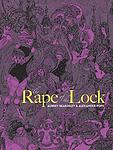Alexander Pope
Alexander Pope (1688-1744) was an 18th-century English poet best known for his satirical verse and for his translation of Homer. He is famous for his use of the heroic couplet, and he is considered one of the greatest English poets of the Enlightenment era. His notable works include 'The Rape of the Lock,' 'The Dunciad,' and 'An Essay on Criticism.'
Books
This list of books are ONLY the books that have been ranked on the lists that are aggregated on this site. This is not a comprehensive list of all books by this author.
-
1. An Essay on Man
"An Essay on Man" is a philosophical poem that explores complex ideas about man, God, and the universe. The author uses a variety of poetic forms to express his thoughts, arguing that despite the imperfections and apparent chaos in the world, everything is part of a larger divine plan. He asserts that man should accept his place in the "Great Chain of Being" and not question God's design. This work is a reflection on the Enlightenment ideals of rationality, order, and the pursuit of knowledge.
-
2. The Rape of the Lock
This satirical mock-heroic poem is a humorous critique of 18th century high society in England, focusing on a trivial event - the cutting of a woman's lock of hair without her consent - which is blown out of proportion. The poem, written in a style that mimics epic works like the Iliad and the Odyssey, uses this event to highlight the vanity and petty squabbles of the elite, using a combination of humor, wit, and irony. It also explores themes of beauty, gender roles, and the nature of good and evil.
-
3. Poems Of Alexander Pope
This collection brings together the lyrical and satirical works of a prominent 18th-century English poet known for his brilliant use of heroic couplets and mastery of verse. The poems delve into themes of society, politics, and human nature, showcasing the poet's wit, moral insight, and technical prowess. Among the celebrated pieces are mock-heroic epics that satirize contemporary figures and the literary world, as well as personal reflections that reveal the poet's thoughts on his own physical limitations and his philosophical contemplations on life and art. The compilation serves as a testament to the enduring influence of one of the era's most significant literary figures.


